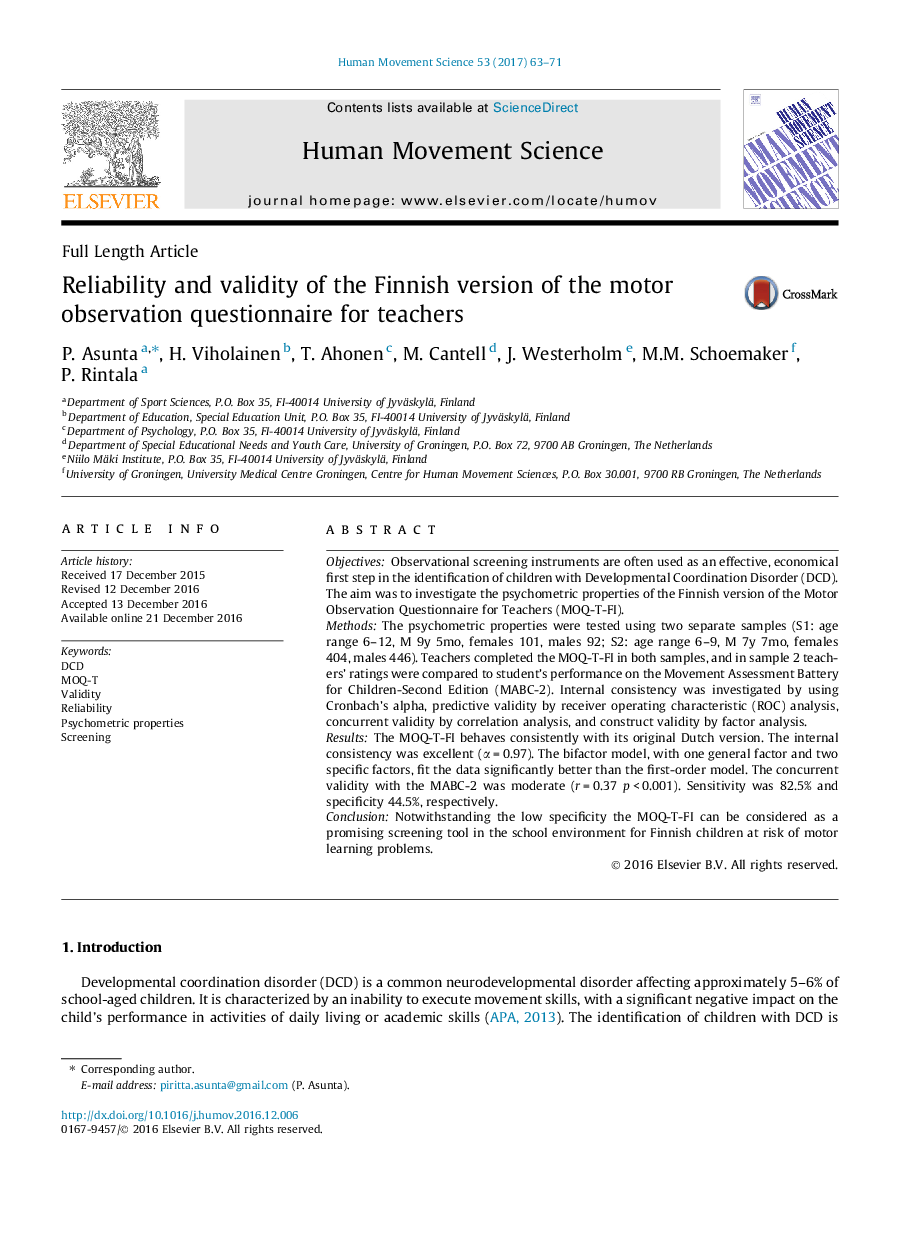| Article ID | Journal | Published Year | Pages | File Type |
|---|---|---|---|---|
| 5042009 | Human Movement Science | 2017 | 9 Pages |
ObjectivesObservational screening instruments are often used as an effective, economical first step in the identification of children with Developmental Coordination Disorder (DCD). The aim was to investigate the psychometric properties of the Finnish version of the Motor Observation Questionnaire for Teachers (MOQ-T-FI).MethodsThe psychometric properties were tested using two separate samples (S1: age range 6-12, M 9y 5mo, females 101, males 92; S2: age range 6-9, M 7y 7mo, females 404, males 446). Teachers completed the MOQ-T-FI in both samples, and in sample 2 teachers' ratings were compared to student's performance on the Movement Assessment Battery for Children-Second Edition (MABC-2). Internal consistency was investigated by using Cronbach's alpha, predictive validity by receiver operating characteristic (ROC) analysis, concurrent validity by correlation analysis, and construct validity by factor analysis.ResultsThe MOQ-T-FI behaves consistently with its original Dutch version. The internal consistency was excellent (α = 0.97). The bifactor model, with one general factor and two specific factors, fit the data significantly better than the first-order model. The concurrent validity with the MABC-2 was moderate (r = 0.37 p < 0.001). Sensitivity was 82.5% and specificity 44.5%, respectively.ConclusionNotwithstanding the low specificity the MOQ-T-FI can be considered as a promising screening tool in the school environment for Finnish children at risk of motor learning problems.
